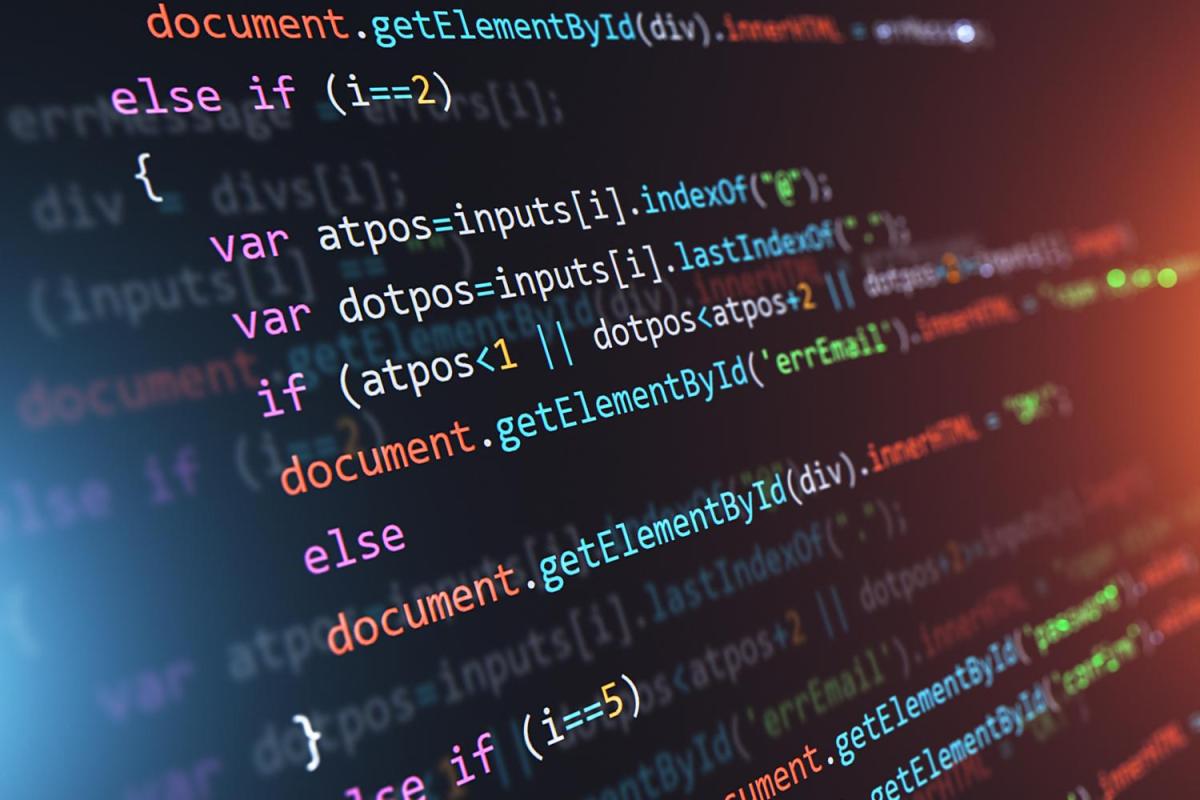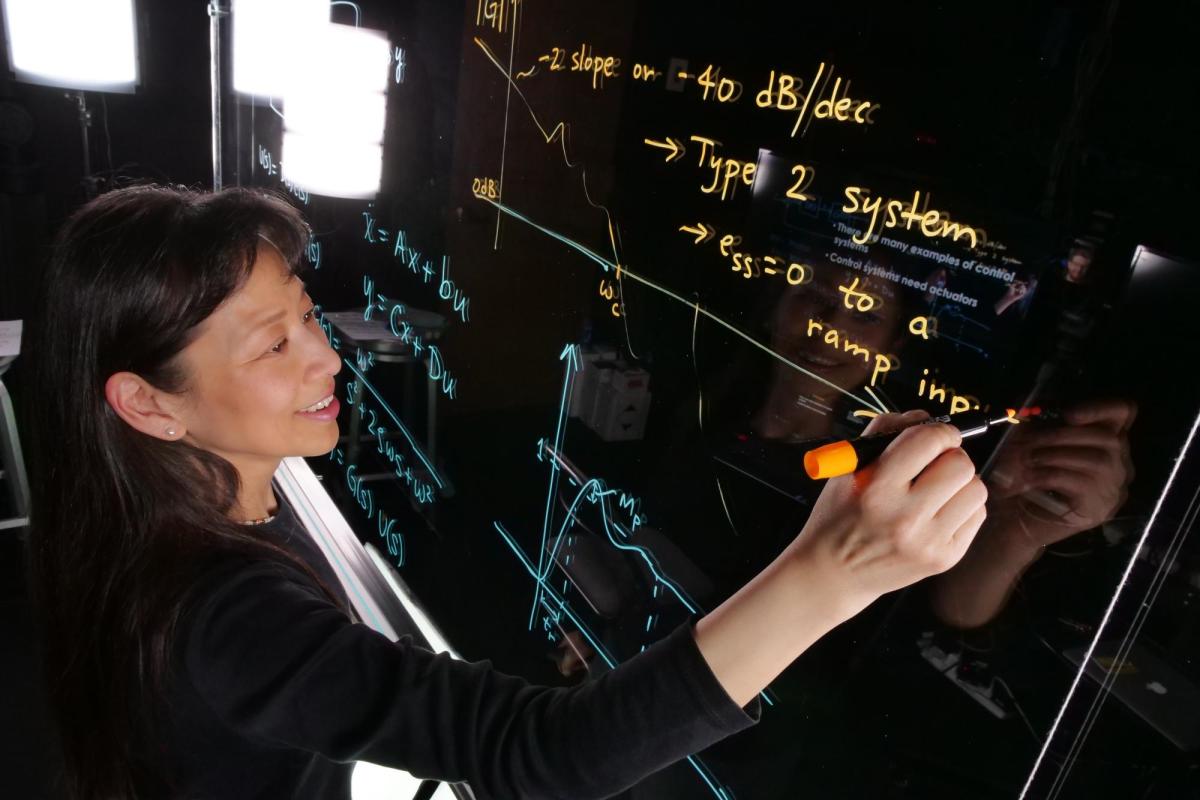CU Boulder Degrees Hosted on the Coursera Platform: Non-Credit (Open) Courses Available On Demand
Get started in the non-credit version of a course while you wait for the next enrollment period for CU Boulder degrees hosted on the Coursera platform. You can upgrade, pay tuition, and move your progress to the for-credit version during any future enrollment period.
Click on a course below to learn more and enroll in the non-credit version. Find more curriculum details for on the ME-EM on Coursera program website.
Pathway Courses
Finance for Technical Managers (Pathway)
- EMEA 5021 Product Cost and Investment Cash Flow Analysis
- EMEA 5022 Project Valuation and the Capital Budgeting Process
- EMEA 5023 Financial Forecasting and Reporting
Project Management (Pathway)
- EMEA 5031 Project Management: Foundations and Initiation
- EMEA 5032 Project Planning and Execution
- EMEA 5033 Agile Project Management
Core Courses
Principles of Leadership: Leading Oneself
- EMEA 5051 Leading Oneself with Self-Knowledge
- EMEA 5052 Leading Oneself with Purpose and Meaning
- EMEA 5053 Leading Oneself with Personal Excellence
Technical Communication
- EMEA 5016 Communication as a Technical Leader
- EMEA 5017 Technical Managerial Written Skills
- EMEA 5018 Speaking to a Technical Group
Elective Courses
The Data-Driven Manager
- EMEA 5006 Defining, Describing, and Visualizing Data
- EMEA 5007 Data Acquisition, Risk, and Estimation
- EMEA 5008 Data-Driven Decision Making
Global Perspectives of Diversity, Equity, and Inclusion (DEI) in the Workplace
- EMEA 5057 Your World and What Shapes It
- EMEA 5058 "Their" World and How You Define It
- EMEA 5059 Our World and How To Accept It
Principles of Leadership: Leading Technical Organizations
- EMEA 5054 Leadership Style and Building a High-Performance Team
- EMEA 5055 Accountability and Employee Engagement
- EMEA 5056 Value Creation and Building Enduring Relationships
Technology Entrepreneurship
- EMEA 5091 Getting Started with Technology Startups
- EMEA 5092 Creating a Technology Startup Company
- EMEA 5093 Forming, Funding, and Launching a Technology Startup Company
Principles of Leadership: Leading Technical Teams
- EMEA 5061 A Technical Leaders Qualities and Effectiveness
- EMEA 5062 Challenges of Leading Individuals in the Tech Industry
- EMEA 5063 Challenges of Leading Technical Teams
Introduction to Systems Engineering
- EMEA 5034 The Need for Systems Engineering
- EMEA 5035 Applying Systems Engineering to the Design Process
- EMEA 5036 Systems Engineering and Program Management
Neuroscience of Personal Excellence
- EMEA 5064 The Neuroscience of Personal Excellence
- EMEA 5065 The Neuroscience of Leading High-Performance Teams
- EMEA 5066 The Neuroscience of Leading Transformational Organizations
Marketing Strategy for Engineers and Technologists
- EMEA 5094 Market Research & Analysis for Tech Industries
- EMEA 5095 Digital Media & Strategic Planning in Technology Markets
- EMEA 5096 Building and Pitching Marketing Campaigns in Tech Industries
Ethical Decision-Making in the Tech Industry
- EMEA 5081 A Theoretical Origin of Ethics in Business and Tech Industry
- EMEA 5082 Avoiding Ethical Pitfalls in the Tech Industry
- EMEA 5083 Ethical Decision Making for Success in the Tech Industry
Product Development
- EMEA 5401 Strategic Product Development
- EMEA 5402 Managing the New Product Development Process
- EMEA 5403 Product Innovation Management
Applied Sustainability for Technical Managers
- EMEA 5216 Sustainability and the Circular Economy
- EMEA 5217 Applied Sustainability Engineering
- EMEA 5218 Leading the Circular and Sustainable Business
Resilience Engineering and Leadership in Crisis
- EMEA 5231 Resilience & Leadership: Concepts, Definitions, & Frameworks
- EMEA 5232 Resilience & Leadership: Tools, Methods, & Applications
- EMEA 5232 Resilience & Leadership: Design, Development, & Integration
Sustainable and Resilient Operations and Supply Chains
- EMEA 5226 Sustainable and Resilient Operations Management
- EMEA 5227 Developing and Managing Sustainable Supply Chains
- EMEA 5228 Impacts of Sustainable Operations and Supply Chains
Sustainable and Circular Product Development
- EMEA 5222 Product Design for the Circular Economy
- EMEA 5223 Packaging Design for the Circular Economy
- EMEA 5224 Circular Product Design Frameworks and Certifications - coming soon
Other Electives (Optional)
Up to 9 credits of courses from other CU Boulder degrees on Coursera programs may be applied as elective credits toward the ME-EM on Coursera. Courses must be graduate-level and meet all applicable academic standards. Courses may not be double counted toward two credentials of the same level. See the ME-EM on Coursera Student Handbook for details.
Click on a course below to learn more and enroll in the non-credit version. Find more curriculum details for on the MS-CS on Coursera program website.
Pathway Courses (Non-Credit)
Foundations of Data Structures and Algorithms (Pathway)
- CSCA 5414 Dynamic Programming, Greedy Algorithms – Cross-listed with DTSA 5503
- CSCA 5424 Approximation Algorithms and Linear Programming
- CSCA 5454 Advanced Data Structures, RSA and Quantum Algorithms
Software Architecture for Big Data (Pathway)
- CSCA 5008 Fundamentals of Software Architecture for Big Data – Cross-listed with DTSA 5507
- CSCA 5018 Software Architecture Patterns for Big Data – Cross-listed with DTSA 5508
- CSCA 5028 Applications of Software Architecture for Big Data – Cross-listed with DTSA 5714
Other Breadth Courses
Machine Learning: Theory & Hands-On Practice with Python
- CSCA 5622 Introduction to Machine Learning: Supervised Learning – Cross-listed with DTSA 5509
- CSCA 5632 Unsupervised Algorithms in Machine Learning – Cross-listed with DTSA 5510
- CSCA 5642 Introduction to Deep Learning – Cross-listed with DTSA 5511
Computing, Ethics, and Society
- CSCA 5214 Computing, Ethics, and Society Foundations
- CSCA 5224 Ethical Issues in AI and Professional Ethics
- CSCA 5234 Ethical Issues in Computing Applications
Network Systems: Principles and Practice (Linux and Cloud Networking)
- CSCA 5063 Network Systems Foundations
- CSCA 5073 Network Principles in Practice: Linux Networking
- CSCA 5083 Network Principles in Practice: Cloud Networking (coming soon)
Elective Courses
Data Mining Foundations and Practice
- CSCA 5502 Data Mining Pipeline – Cross-listed with DTSA 5504
- CSCA 5512 Data Mining Methods – Cross-listed with DTSA 5505
- CSCA 5522 Data Mining Project – Cross-listed with DTSA 5506
Introduction to Robotics with Webots
- CSCA 5312 Basic Robotic Behaviors and Odometry
- CSCA 5332 Robotic Mapping and Trajectory Generation
- CSCA 5342 Robotic Path Planning and Task Execution
Generative AI
- CSCA 5112 Introduction to Generative AI
- CSCA 5122: Modern Applications of Generative AI (in development)
- CSCA 5132: Advances in Generative AI (in development)
Foundations of Autonomous Systems
- CSCA 5834: Modeling of Autonomous Systems
- CSCA 5844: Requirement Specifications for Autonomous Systems
- CSCA 5854: Verification and Synthesis of Autonomous Systems (coming soon)
Click on a course below to learn more and enroll in the non-credit version. Find more curriculum details for on the MS-DS on Coursera program website.
Expressway Courses (Non-Credit)
Expressway to Data Science: R Programming & Tidyverse
- Introduction to R Programming and Tidyverse – Non-credit only
- Data Analysis with Tidyverse – Non-credit only
- R Programming and Tidyverse Capstone Project – Non-credit only
Expressway to Data Science: Python Programming
- Introduction to Python Fundamentals – Non-credit only
- Introduction to Python Functions – Non-credit only
- Python Packages for Data Science – Non-credit only
Expressway to Data Science: Essential Math
- Algebra and Differential Calculus for Data Science – Non-credit only
- Essential Linear Algebra for Data Science – Non-credit only
- Integral Calculus and Numerical Analysis for Data Science – Non-credit only
Pathway Courses
Foundations of Data Structures and Algorithms (Pathway)
- DTSA 5501 Algorithms for Searching, Sorting, and Indexing
- DTSA 5502 Trees and Graphs: Basics
- DTSA 5503 Dynamic Programming, Greedy Algorithms – Cross-listed with CSCA 5414
Data Science Foundations: Statistical Inference (Pathway)
- DTSA 5001 Probability Theory: Foundation for Data Science
- DTSA 5002 Statistical Inference for Estimation in Data Science
- DTSA 5003 Statistical Inference and Hypothesis Testing in Data Science Applications
Data Science Core Courses
Vital Skills for Data Scientists
- DTSA 5301 Data Science as a Field
- DTSA 5302 Cybersecurity for Data Science
- DTSA 5303 Ethical Issues in Data Science
- DTSA 5304 Fundamentals of Data Visualization
Computer Science Core Courses
Machine Learning: Theory & Hands-On Practice with Python
- DTSA 5509 Introduction to Machine Learning: Supervised Learning – Cross-listed with CSCA 5622; Same as DTSA 5900-11
- DTSA 5510 Unsupervised Algorithms in Machine Learning – Cross-listed with CSCA 5632
- DTSA 5511 Introduction to Deep Learning – Cross-listed with CSCA 5642
Data Mining Foundations and Practice
- DTSA 5504 Data Mining Pipeline – Cross-listed with CSCA 5502
- DTSA 5505 Data Mining Methods – Cross-listed with CSCA 5512
- DTSA 5506 Data Mining Project – Cross-listed with CSCA 5522
Databases for Data Scientists
- DTSA 5733 Relational Database Design – Core Course
- DTSA 5734 The Structured Query Language (SQL) – Core Course
- DTSA 5735 Advanced Topics and Future Trends in Database Technologies – Elective Course
Statistics Core Courses
Statistical Modeling for Data Science
- DTSA 5011 Modern Regression Analysis in R
- DTSA 5012 ANOVA and Experimental Design
- DTSA 5013 Generalized Linear Models and Nonparametric Regression
Elective Courses
High-Performance and Parallel Computing
Data Science Methods for Quality Improvement
- DTSA 5704 Managing, Describing, and Analyzing Data – Same as DTSA 5900-1
- DTSA 5705 Stability and Capability in Quality Improvement
- DTSA 5706 Measurement Systems Analysis
Databases for Data Scientists
- DTSA 5733 Relational Database Design – Core Course
- DTSA 5734 The Structured Query Language (SQL) – Core Course
- DTSA 5735 Advanced Topics and Future Trends in Database Technologies – Elective Course
Deep Learning Applications for Computer Vision
Effective Communication
- DTSA 5842 Effective Communication: Writing, Design and Presentation
- DTSA 5843 Effective Communication Capstone Project
Statistical Learning for Data Science
- DTSA 5020 Regression and Classification
- DTSA 5021 Resampling Selection and Splines
- DTSA 5022 Trees SVM and Unsupervised Learning
Software Architecture for Big Data
- DTSA 5507 Fundamentals of Software Architecture for Big Data – Cross-listed with CSCA 5008
- DTSA 5508 Software Architecture Patterns for Big Data – Cross-listed with CSCA 5018
- DTSA 5714 Applications of Software Architecture for Big Data – Cross-listed with CSCA 5028
Text Marketing Analytics
Click on a course below to learn more and enroll in the non-credit version. Find more curriculum details for on the MS-EE on Coursera program website.
Embedded Systems
Embedding Sensors and Motors (Pathway)
- ECEA 5340 Sensors and Sensor Circuit Design (0.8 credits)
- ECEA 5341 Motors and Motor Control Circuits (0.8 credits)
- ECEA 5342 Pressure, Force, Motion, and Humidity Sensors (0.8 credits)
- ECEA 5343 Sensor Manufacturing and Process Control (0.6 credits)
FPGA Design for Embedded Systems (Pathway)
- ECEA 5360 Introduction to FPGA Design for Embedded Systems (0.8 credits)
- ECEA 5361 Hardware Description Languages for FPGA Design (0.8 credits)
- ECEA 5362 FPGA Softcore Processors and IP Acquisition (0.8 credits)
- ECEA 5363 Building FPGA Projects (0.6 credits)
Developing Industrial Internet of Things
- ECEA 5385 Industrial IoT Markets and Security (1 credit)
- ECEA 5386 Project Planning and Machine Learning (1 credit)
- ECEA 5387 Modeling and Debugging Embedded Systems (1 credit)
Real-Time Embedded Systems
- ECEA 5315 Concept and Practices (0.6 credits)
- ECEA 5316 Theory and Analysis (0.8 credits)
- ECEA 5317 Mission-Critical - SW Applications (0.8 credits)
- ECEA 5318 Real-Time Embedded Systems Project (0.8 credits)
Embedded Interface Design
- ECEA 5346 User Experience Interface Design for Embedded Systems (1 credit)
- ECEA 5347 Rapid Prototyping of Embedded Interface Designs (1 credit)
- ECEA 5348 M2M IoT I/F Interface Design & Protocols (1 credit)
Sensors for a Carbon Free World
- ECEA 5349 Electric Vehicle Sensors (1 credit)
Advanced Embedded Linux Development
- ECEA 5305 Linux System Programming and Introduction to Buildroot (1 credit)
- ECEA 5306 Linux Kernel Programming and Introduction to Yocto (1 credit)
Power Electronics
Power Electronics (Pathway)
- ECEA 5700 Introduction to Power Electronics (0.8 credits)
- ECEA 5701 Converter Circuits (1 credit)
- ECEA 5702 Converter Control (1.2 credits)
- ECEA 5703 Magnetics Design (1 credit)
Power Electronics Capstone
- ECEA 5715 Power Electronics Capstone Project (1.2 credits) - No non-credit version available
Modeling and Control of Power Electronics
- ECEA 5705 Averaged Switch Modeling and Simulation (0.8 credits)
- ECEA 5706 Technical Design-Oriented Analysis (0.6 credits)
- ECEA 5707 Input Filter Design (0.6 credits)
- ECEA 5708 Current Mode Control (1.2 credits)
- ECEA 5709 Modeling and Control of Single-Phase Rectifiers and Inverters (0.6 credits)
Algorithms for Battery Management Systems
- ECEA 5730 Introduction to Battery-Management Systems (0.8 credits)
- ECEA 5731 Equivalent Circuit Cell Model Simulation (0.8 credits)
- ECEA 5732 Battery State-of-Charge (SOC) Estimation (1 credit)
- ECEA 5733 Battery State-of-Health (SOH) Estimation (0.8 credits)
- ECEA 5734 Battery Pack Balancing and Power Estimation (0.8 credits)
Photovoltaic Power Electronics
- ECEA 5716 Open-Loop Photovoltaic Power Electronics Laboratory (1 credit) - Same as ECEA 5005 - No non-credit version available
- ECEA 5717 Closed-Loop Photovoltaic Power Electronics Laboratory (1 credit) - Same as ECEA 5006 - No non-credit version available
- ECEA 5718 Photovoltaic Power Electronics Battery Management Laboratory (1 credit) - No non-credit version available
Power Semiconductor Devices
- ECEA 5721 Introduction to Power Semiconductor Switches (0.6 credits)
- ECEA 5722 High-Voltage p-n and Schottky Diodes (1.2 credits)
Photonics and Optics
Optical Engineering (Pathway)
- ECEA 5600 First Order Optical System Design (1 credit)
- ECEA 5601 Optical Efficiency and Resolution (1 credit)
- ECEA 5602 Design of High-Performance Optical Systems (1 credit)
Semiconductor Devices (Pathway)
- ECEA 5630 Semiconductor Physics (1 credit)
- ECEA 5631 Diode - pn Junction and Metal Semiconductor Contact (1 credit)
- ECEA 5632 Transistor - Field Effect Transistor and Bipolar Junction Transistor (1 credit)
Active Optical Devices
- ECEA 5605 Light Emitting Diodes and Semiconductors Lasers (1.2 credits)
- ECEA 5606 Nanophotonics and Detectors (1.2 credits)
- ECEA 5607 Displays (0.6 credits)
Quantum Mechanics for Engineers
- ECEA 5610 Foundations of Quantum Mechanics (1.4 credits)
- ECEA 5611 Theory of Angular Momentum (0.8 credits)
- ECEA 5612 Approximation Methods (0.8 credits)
Elective Courses
Control Systems Analysis
- ECEA 5800 Modeling of Feedback Systems (1 credit)
Engineering Genetic Circuits
- ECEA 5934 Engineering Genetic Circuits: Design (1 credit)
Up to 9 credits of courses from other CU Boulder degrees on Coursera programs may be applied as elective credits toward the MS-EE on Coursera. Courses must be graduate-level and meet all applicable academic standards. Courses may not be double counted toward two credentials of the same level. See the MS-EE on Coursera Student Handbook for details.
Cross-listed Courses: Courses that are offered under two or more programs. Considered equivalent when evaluating progress toward degree requirements. You may not earn credit for more than one version of a cross-listed course.
How It Works
- The work you complete in the non-credit version of a course moves with you to the for-credit version when you upgrade and pay tuition. Due to their interactive nature, discussion board posts and peer-graded assignments may not move with you from session to session if you drop/withdraw and later re-enroll in a particular class. Be sure to save your work outside of the Coursera platform.
- After you upgrade, you will complete additional graded assignments to earn credit for the course. Select courses may require the purchase of additional materials to complete graded assignments. See course pages linked above for details.
- You can upgrade from non-credit to for-credit at any time during your learning journey.
Students currently enrolled in for-credit CU Boulder degree courses on Coursera are eligible for free access to non-credit versions of 200+ CU courses through the CU on Coursera learning program. This program grants you sponsored access to a selected bundle of non-credit (open) courses from across the University of Colorado Coursera portfolio. Click below to learn more and get started.
Get started today regardless of your background with our flexible online degrees.





